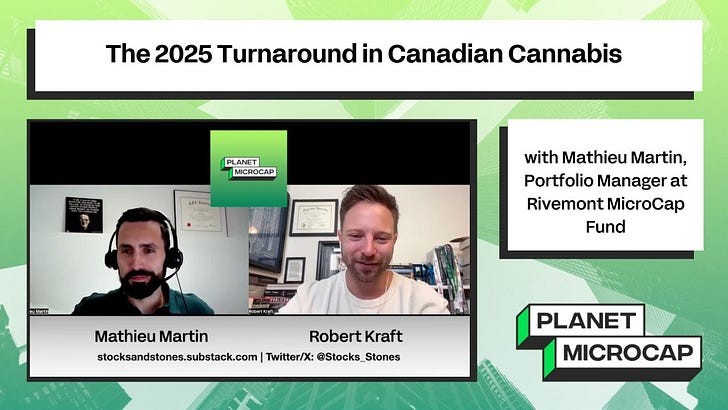To celebrate 10 years since the launch of the Planet MicroCap Podcast, I’m going back through our archives to share with you episodes of the podcast that either: garnered the most downloads/views in our history, stood out to me for the subject matter, the first appearances of regulars and/or that I think you’d really appreciate either re-visiting or for some of you, hearing/watching for the first time.
This episode has been, and continues to be, the most watched and downloaded episode of the Planet MicroCap Podcast, a conversation that I cherish very much, and reflect about a lot.
I had the honor of speaking with Professor and Value Investor, Sanjay Bakshi in 2017. I was first introduced to Sanjay at the MicroCapClub Leadership Summit 2016 in Chicago – thank you, Ian and Mike for the introduction. He was a speaker at their event, and after his speech I did some more research on him. I was blown away – he above all else, has this insatiable desire for knowledge, which hits home for me. This interview took about six months to book and I’m so grateful for this opportunity.
Sanjay Bakshi, as it states on SanjayBakshi.net, is an Adjunct Professor at Management Development Institute, Gurgaon, in India, where he teaches a popular course Behavioral Finance and Business Valuation. He also is a Managing Partner at ValueQuest Capital LLP. On his websites, you can find his teachings and thoughts on investing, which are quite insightful.
We covered a lot in this interview, which went into two recording sessions. In between the sessions, I did catch a cold, so I do apologize if I sound different. All I can say is thank you again Sanjay for taking the time to do the interview with me and I am incredibly grateful for the wisdom you imparted.
For more information about Sanjay Bakshi, please visit:
Blog: https://fundooprofessor.wordpress.com/
Site: https://www.sanjaybakshi.net/
Twitter: @Sanjay__Bakshi
Watch on YouTube:
Summary:
I. Evolution of Value Investing Philosophy
From Deep Value to Quality
Sanjay Bakshi’s investment philosophy has significantly evolved over the decades, beginning as a traditional Graham-style investor and transitioning to a focus on quality businesses, long-term compounding, and trust in exceptional managers.
Early Graham & Dodd Influence (1990s)
Foundational Approach: Bakshi began by reading Warren Buffett’s letters, which led him to Benjamin Graham’s works such as Security Analysis.
Style: Focused on:
“Arithmetic” Valuation: Buying below liquidation value, net-net stocks, or low P/E multiples.
Special Situations: Emphasized arbitrage and M&A activity, particularly common in India during the 1990s.
Diversification: Heavy diversification to mitigate risk, with little concern for business or management quality.
Quote: “Graham used to say that I don't even need to know the name of the company—if I had the financial statements, I'll tell you if it is cheap or not.”
Shift to Quality and Growth
Avoiding Value Traps: Bakshi learned that not all cheap stocks are good investments, especially if there are issues like bad governance or absent catalysts.
Quote: “Not everything that is cheap will become fairly valued… Maybe it's selling below cash for a reason.”
Expected Return Framework: He adopted a long-term return model that accounts for:
Entry multiple
Earnings growth rate
Exit multiple over a 5–10+ year horizon.
Concentrated Bets: A preference for high-quality businesses allowed for more concentrated portfolios, diverging from his earlier diversified approach.
“Low-Stress” Investing: He avoids:
Unethical industries (tobacco, alcohol, gambling, sugar)
High financial stress (leverage, poor governance, derivatives, shorting)
Daily price checking
Core Metric: “Returns per unit of stress,” not just per unit of risk.
Investing in “Extraordinary Capitalists” (Sidecar Investing)
Inspired by Richard Zeckhauser: Bakshi uses the "sidecar" metaphor—riding alongside powerful owner-operators.
Trust and Integrity: Emphasis on management’s integrity and skill is central to his current strategy.
Quote: “It’s all about having faith in those people.”
Three Buckets for Evaluating Management
Operating Skills: Measured by comparing peers and performance.
Capital Allocation Skills: Judgment on growth strategies, reinvestment vs. distributions, and M&A decisions.
Integrity: Fundamental. “You’re not going to get a good deal with a bad guy.”
II. Key Investing Concepts and Learnings
Financial Independence & Staying Power
Advice: Build an income stream and savings before making long-term bets.
Quote: “You first have to invest and then think about your needs.”
Business Quality vs. Investment Price
Core Idea: A great business can be a poor investment if overpriced. A poor business might be a great investment if sufficiently cheap—but Bakshi now prioritizes quality over cheapness.
Critique of P/E Ratios
Flawed Metric: P/E fails to capture:
Growth potential
Exit multiples
True owner earnings (especially for R&D-heavy firms like Amazon or Geico)
Positive Feedback Loop: “Good Karma”
Concept: Inspired by physics and spirituality, Bakshi believes businesses that help customers thrive see long-term success.
Contrast: Companies focused on short-term gain at customer expense suffer eventual retaliation.
Knowledge Through Sharing
Learning Philosophy: Sharing and discussing ideas—especially with diverse or younger thinkers—enhances creativity and insight.
Quote: “You're going to get more creative the more diverse the network that you have.”
Learning Over Money
Quote: “Don’t chase the money, chase the learning and the money will follow.”
Studying Failure: Learn from failed companies—microcap graveyards hold valuable patterns.
III. Advantages of Being a Small/Microcap Investor
Broader Opportunity Set: Access to underfollowed companies outside institutional scope.
Time Arbitrage: No pressure to meet quarterly targets allows for longer-term compounding.
Illiquidity Premium: Value exists where larger funds cannot go. “You get paid for waiting.”
IV. Advice for Beginning Microcap Investors
Learn Accounting: “Accounting is the language of business.”
Understand Business Models: Read Buffett to learn how good and bad businesses function.
Study Psychology: Mental models and behavioral finance are essential (a la Charlie Munger).
Prioritize Learning: Your goal is to grow as an investor, not just to make money.
Be Long-Term and Ethical: Avoid shortcuts, manipulation, or unethical companies.
Study Failures: Visit the “graveyard” of companies to recognize early signs of trouble.
“Can’t Predict, But Can Protect”: Don’t rely on macro predictions. Favor companies with pricing power and resilience.
Stay in Your Circle of Competence: Invest in businesses and markets you understand deeply.
Quote: “Buffett prefers blind dates to the girl next door… I like the girl next door.”
Learn New Sectors Slowly: Explore unfamiliar sectors without immediate investment pressure. Ask friends and experts first.
V. The Professor–Fund Manager Dynamic
Synergy
Reinforcement Loop: Teaching forces Bakshi to reflect on investment ideas, while managing real capital provides practical case studies for students.
Ethical Conduct
Discipline Required: Balancing both roles requires upholding the highest standards of conduct.
Model Behavior: Bakshi aims to lead by example in both domains.
Planet MicroCap Podcast is on YouTube! All archived episodes and each new episode will be posted on the Planet MicroCap YouTube channel. I’ve provided the link in the description if you’d like to subscribe. You’ll also get the chance to watch all our Video Interviews with management teams, educational panels from the conference, as well as expert commentary from some familiar guests on the podcast.
Subscribe here: http://bit.ly/1Q5Yfym
Click here to rate and review the Planet MicroCap Podcast
The Planet MicroCap Podcast is brought to you by SNN Incorporated, The Official MicroCap News Source, and the Planet MicroCap Review Magazine, the leading magazine in the MicroCap market.
You can Follow the Planet MicroCap Podcast on Twitter @BobbyKKraft












Share this post